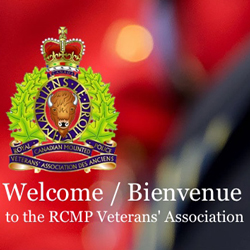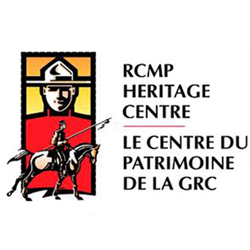Law And Order In The Wilds Of The British Northwest
Veteran Bill Sedler forwarded to us an old news article written by Frank G. Carpenter and appeared in the Boston Sunday Globe – August 27, 1916.
The articles outlines duties and responsibilities of the Royal North West Mounted Police in the Canadian far north. This article has been included below for your reading pleasure and reflection on how times have changed. We have include historical photographs related to the topics mentioned.
Fifty Men Keep The Peace Territory, a Country Almost As Big As Germany – Complete System of Patrol And A Record Of The Whereabouts Of Nearly Everyone At All Times A Great Aid In Detecting Crime.
The Kaiser keeps law and order in Germany. He has the largest single army on earth, and 5,000,000 or 6,000,000 soldiers respond to his call. his principality is in the neighbourhood of 200,000 square miles.
There is a man here at Dawson who is a military ruler of a country almost as large. It is a part of the Dominion of Canada and is known as the Territory of the Yukon. It begins at the south within 30 miles of the Pacific Ocean, and extends to Herschel Island near where the Mackenzie River flows into the Arctic.
It is almost 1,000 miles long and several hundred miles wide and has its nomadic and settled populations of Indians, Eskimos, and white men. The army that keeps this great tract in order consists of less than 50 men and the proportion of unsolved crime is significantly less than the Kaiser. It is know as the Yukon Division of the Northwest Mounted Police, and its commander is Sergeant R.S. Knight, who has recently come here from Regina, to succeed Maj. J.D. Moodie, retired.
Maj. Moodie has had control of the territory for a number of years, and I have had a long chat with him as to how Canada keeps such good order in this frontier land of the north.
But first let me give you a general idea of the Northwest Mounted Police. My information comes from Colonel Frederick White, the commissioner of the territorial districts of Canada and the Commander-in-Chief of the Force. Colonel White’s headquarters are in Ottawa and it was there some time ago that I met him and talked about the remarkable organization. At that time, it consisted of less than 1,000 men. Since the war broke out it was increased to about 1,200, but most of the increase has gone to the southern parts of the Dominion, and the number in the Yukon remains just about the same.
Still, 50 men is not many. It seems very few in comparison to the size of the territory in which they have to keep order. It has under its jurisdiction a territory which is fully one-half the size of the United States, and the greater part of that country is wilderness. It runs from the boundaries of the United States to the Arctic Ocean and it has its stations around Hudson Bay, on the Peace River, and along the banks of the Mackenzie. Its members patrol every part of the wheat belt where Americans and others are now taking up homesteads, and they gallop along the international boundary of our country and Canada, guarding against smuggling and cattle thieving, and settling all minor troubles that arise between the two people.
ON THE TRAIL DAY AND NIGHT
The mounted police watch over the interests of the farmers of Southern Canada. Every colonist is visited and his complaints investigated. Every policeman has a route along which he rides from farm to farm and town to town, asking if anything has taken place since his last visit. He has to send in a report form every settler, and if misdemeanours are committed he has to arrest and punish the offenders.

Photograph of a Force dog sled in the northern part of Canada (Source of photo – Ric Hall’s Photo Corner).
When murders or other high crimes occur, he takes the criminal to court, and he often acts as detective, keeping on the trail day and night, until evidence is secured that brings the robber to prison or the murderer to the gallows. The Mounted Police have made many of the trails of the far north. They cut the first road through the wilds to the Yukon. At the time of the gold discovery they opened up the Rocky Mountains to prospectors. In their explorations, they sometimes erect houses along the trails and leave supplies of provisions for other travellers who may come after.
The have a station on Hudson Bay which is made of houses shipped there in pieces, and the police there give reports on conditions of the Bay and the way the Indians are treated. They have steam launches to patrol the bay, and they go up the rivers in canoes, and across the country with sleds and dogs. Maj. Moodie tells me that the Yukon force is scattered all over the territory – say he:
“We have one constable stationed 500 miles up the Porcupine River from Fort Yukon, Alaska. We have one on Herschel Island in the Arctic Ocean, and another at Fort Macpherson, which is 230 miles distance. We have a station at Whitehorse, and others scattered here and there so as to cover all the mining camps of the territory.”
“Tell me something of the duties of these men.”
“Each constable has one or two men with him, and sometimes an Indian or two as well. Together they patrol the whole country. They make long trips visiting the mines and reporting what is going on amongst the prospectors. They administer justice on small matters in the out of the way districts, and they keep order among the Indians and the Eskimos. They also see that the poor and the insane are cared for and brought to the asylums. In fact, they do almost everything except grant divorces. We have cases where they have performed the ceremony of marriage, but their chief business is in keeping of order and the punishment of crime.”
COMPLETE RECORD IS KEPT
“But how can you keep track of the people in such a large territory, Maj. Moodie? Your whole land is a wilderness and for half of the year it is all snow and ice.”
“We manage to know pretty well where everyone is all the time” was the reply. “We have regulations by which every hotel and roadhouse is required to keep a daily record of all who stop there. The arrivals and departures are reported to the police, and this is so in the towns as well as in the wilds. Every hotel in Dawson has a full list of its guests on the page of the hotel registered every morning. This is so of those who have come days or weeks before, if they are still in the hotel. the register shows the name of every person in the house and I may say that we know about where every man in the territory sleeps every night. We get reports on all the passengers who go up and down the rivers, and from every telegraph station they pass on the way. When a steamer leaves Whitehorse for Dawson, the purser hands in the names of its passengers and they re telegraphed here. If anyone gets off on the way, his name is telegraphed, and we check up the list when the boats come in.
If a man starts out in a canoe to go up or down a river, it is reported, and if three men start out and one is missing we can see this from the difference in the report on that canoe as it passes the next telegraph station. The police also patrol the country from their various stations. They send in reports of just who come in and go out of their respective districts, and also what they are doing while they are there.”
“Give me some idea of the amount of crime committed in your territory.”
Our record is fairly good. I have here the jail report for the past year, which includes the penitentiary as Well. The total number during that time was 82, of which 74 were males and 8 females. Three of the males Were insane. Our daily average of persons in jail last year was less than nine, and the most we had on any One day was 12. This is for a country as large as France, and for a population largely made up of Frontiersmen and miners. Presently we have seven in jail. Of these, five are men and two are women who Are serving a year for picking the pockets of men who were in a state of intoxication Two of the others are sneak theives, one who is in for assault and another charged with having attempted murder while drunk. Indeed we have so few bad characters under arrest that it is difficult to keep our barracks in order and our Lawn properly mowed. We make the prisoners work. The two women do hard labour in the laundry, and We make sure of that much help in our washing for the rest of the year.”
“Have you many murders in the Klondike”
“The records show that we have had altogether only 14 since gold was discovered, and the murderers were All hanged. No, I am mistaken, they were all hanged but one, he was shot. That goes back to 1896. Some of the murder stories of this part of the world are interesting continued the major. Take for instance one That is said to have occurred near Alaska. The murdered man was a miner and he was killed by an Indian At the end of the season when the miners were about to leave until the next year. They had not time to follow the Indian and arrest him but they went to the Chief and told him they must catch the murderer and Have him ready for them when they returned in the spring, as they intended to hang him. When spring came they went to the Chief and demanded the man. He replied “me got him all right. You come see.” He thereupon took them to the back of the camp and showed them a dead Indian frozen in a large block of Ice. As they looked the Chief continued ” We got him last Fall. We know you will kill him in the Spring, So we shoot him in the Fall. What use to feed him and guard him all Winter.””We had a case some time ago of a miner who inveigled two young men with money to come Seattle to Whitehorse, and go with him in a canoe 200 miles down the Yukon. There they stopped ata bend in the river, where they were to make their way inland to a gold project the miner had located. As they camped, The miner had one of the men build a fire while he took the other off with him to hunt game. Within a Short time the man at the camp heard a shot and later the miner came in and said they had killed a bear About a mile away and they wanted the man at the camp to go with him to carry in the bear meat. The Two then started off together, the miner walking behind. The stranger began to think that all was not Right. He turned his head quick and found that the miner had raised his rifle and drawn a bead on him. As he rushed to grab the gun, it went off and shot him through the cheek. The stranger then grappled With the miner and succeeded in getting the gun. He ran away and finally got to the boat and came to Dawson. He notified the police and we kept watch of the river. Within a few days the old miner came Floating down in a boat. Our men followed him and put him under arrest. We then went back to the camp And found the body of the man who had started out to hunt bear,. It had been the intention of the miner To decoy the second man to the place and shoot him. He wanted the two men together so he could drag Their bodies more easily to the river and sink them. The murderer was tried in a month and hung two Months later.”
NOT MANY HOLDUPS
“Do you ever have lynchings or hold-ups?’
“I have never heard of any in the Yukon, replied Major Moodie, and we had none in Southern Canada when The Canadian Pacific Railway was undergoing construction, although there were frequent hold-ups of the Trains of the United States just over the border.
“We had now and then a man held up in the mountains, away from the railroad, but not many. I remember one in which a highwayman held up a man and a woman who were travelling on horseback through the hills. He covered them with his revolver and ordered the man to dismount. The woman was told to stay Where she was. The highwayman then made the man hold up his hands while he went through his pockets. All this time the woman on horseback was congratulating herself upon her escape. All this changed when The robber left his victim and stepped up to her saying “beg pardon, just a moment madam. He thereupon Got her to raise her skirt to her knees, thrust his hand into her stocking, and took out her money. He seemed To know just where it was and there was no wasted effort.
I asked Major Moodie as to the cause of most of the crime in the Territory. He replied.
The greatest trouble is from the smuggling of liquor. The kind sold here has been almost pure Alcohol. We try to prevent it from getting to the Indians and we do to keep it out. Nevertheless It comes in in all sorts of ways. We have had cases of whiskey in bottles being put inside dressed Hogs, which were then sewed up and shipped in. In the old days all sorts of methods were used to Sell whiskey without paying licenses. One was that of a woman who had a rubber arm which when Squeezed would give forth two or three fingers as needed.
I asked Major Moodie how it was that the Mounted Police are so feared by bad characters that This whole territory can be controlled by a handful. He replied.
“The men know that the Mounted Police are going to get them sooner or later. When an officer is sent After them, they know they could easily kill him but they know also that a second Force will be sent and That this Force will be gradually be increased until they are finally overpowered. I have seen policemen Arrest men of twice their weight and strength and have had one or two round up a mob and bring them all To jail. This is true not only with our bad men but also with those who come across from Alaska. They May be dangerous enough when they are on the other side of the border but they are gentle enough when They come here On the other hand, the men know they will have a fair show.
“Our officers do not carry clubs, continued Major Moodie, all that is necessary seems to be to put your hand On a man and tell him to come. Twenty of our me have stopped a mob consisting of hundreds. One thing that helps is the fact that the Government supports us and it is known it will fight to the end. In the Obrien Murder it cost $300,000. To convict, but it was done, and the man was hanged. Sir Wilfred Laurier used to Say that he would spend all the money in the treasury rather than that a murderer should go unpunished
That policy has done much to enable us to keep order in the wilderness.”
HIGH CLASS MEN
“Where do the Mounted Police come from?”

Photograph of RNWMP members on patrol and stopping to enjoy a mid day meal (Source of photo – Ric Hall’s Photo Collection).
A large portion are young Englishmen who emigrated to Canada to make their fortunes and have not succeeded. A few are the younger sons of the nobility. There are also many who are Canadian born and Altogether they are of a high class.
“What are the requirements?”
Physically a man must be in good condition. He must be at least 5’10” tall and have a chest measurement Of 36″. He must have a good standing and some education.
“What is the pay and how long do you serve?”
The term of enlistment is for three years, but at the expiration of that time the men are allowed to enlist for Another three years. Some of them keep on reenlisting so we have some who have been long in the service. As to the pay, constables of the lowest grade of police receive $!. A day with their uniforms and rations. They get everything except their tobacco and washing As their service goes on, the pay rises for each year At the rate of 5 cents a day. Corporals get $1.50 and day, Sergeants $1.75, and Staff Sergeants from $> to $2.50. All Mounted Police are paid from 50-75 cents more per day in this district because the prices of Everything are higher.
NOTE: What the article does not reflect is the large numbers of RNWMP members leaving the Force to serve overseas (See –RNWMP: Volunteerism & Patriotism In World War I).Finally in 1918, the Canadian government authorized two RNWMP contingents to serve overseas: “A” Squadron to the Western Front in World War 1 and “B” Squadron to serve in Siberia during the Russian Revolution. With the creation and departure of these members, the total strength of the Force at the end of 1918 was just over 300.


 October 21, 2014
October 21, 2014 













